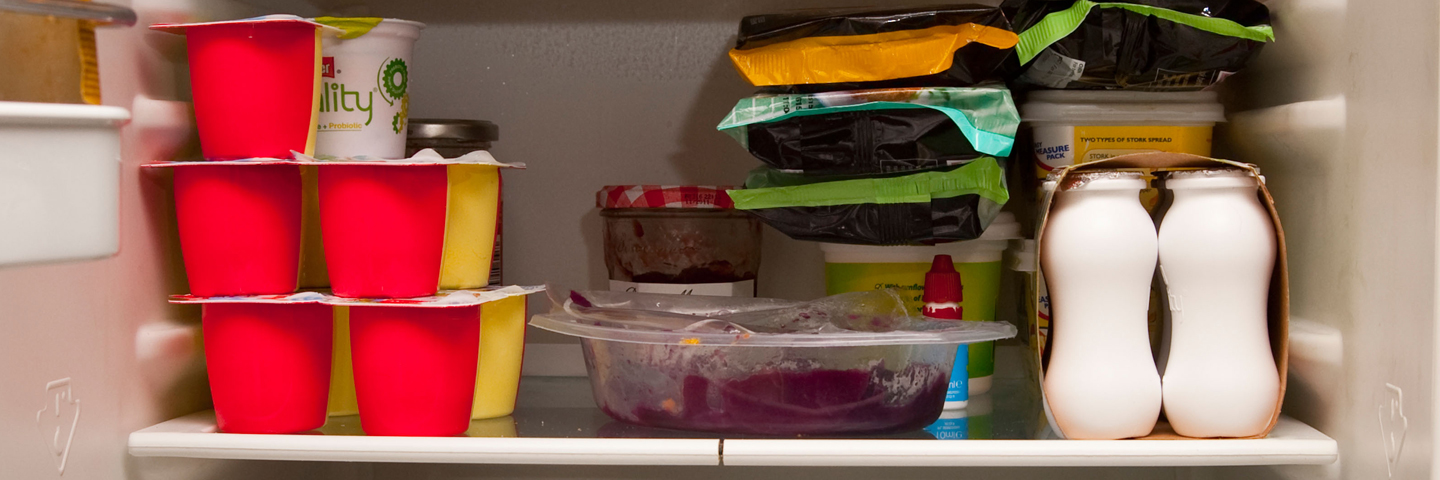 It’s time to test your nerve and see if you can outsmart supermarket special offers!
It’s time to test your nerve and see if you can outsmart supermarket special offers!
Supermarkets spend millions of pounds on tricks to get us to spend more - and it works too. Apparently, three quarters of us spend more than we mean to at the checkout.
Don’t let them trick you into spending more than you want to. An extra tenner each time you shop might not sound like much, but if you go shopping twice a week, it adds up to more than £1,000 a year!
Quick Win
People who always make a shopping list are three times less likely to overspend than those who don’t, spending almost £200 a less a year on groceries. So, if you fancy a big saving, get out that pen and paper!What should you do with your extra money? Now that you’ve saved a few quid, we’ve a few ideas that will get you saving. Try them out here
How long it’ll take: 30 minutes a week
Equipment needed:
- Shopping list, To add stuff for your packed lunches
- Bags, To beat the charges
- Calculator or smartphone, To check the best deals
- Payment card, or cash if you really want to keep a tight rein on your spending
1. Stick to your shopping list
Tempted by treats and offers? Try sticking to a shopping list, if you want to avoid wasting food and money. On a big shop, think before you buy - is it worth it? Will you use it before it goes off? If you only nipped in for milk and bread, try to leave without adding anything extra.
2. Trade down your brands
Test your taste buds by trading down to different brands. Food that costs more doesn’t necessarily taste better, and some own-brand food is even made in the same factory as the big brands. Sneaky eh?
If you buy branded food, try the supermarket own brand. Where you buy premium supermarket products, try their standard own brand range, and then try the value versions.
3. Check out the cost per kilo
Don’t get caught out by offers and different pack sizes. Beat the supermarkets at their own game - look at the shelf labels, and check the price per kilo rather than the pack price.
See if your supermarket has scales in the fresh fruit and veg section. You can use them to weigh up whether that pack of four pears is actually cheaper than buying them loose.
Don’t be fooled by supermarket special offers - like buy one get one free, they can be confusing (or a con!). Take time to work out what is cheapest, and you could make some serious savings. Don’t be afraid to have a sneaky look at mySupermarket.com on your smartphone, to track down better deals.
Buying bigger quantities is often cheaper - provided you will use it all before it goes off. If you have the budget and the storage space, buying big bags of long-lasting food like potatoes, rice and pasta usually costs less per kilo than smaller quantities.
If you buy large packs of meat or fish, you can use some and freeze some later.
Love yellow stickers
Take advantage of the yellow-stickered bargains in the reduced sections. If there’s an item on your list for less, snap it up. So long as you will eat it (or freeze it) before the use by date, it should be perfectly good.
If you’re feeling particularly brave, ask someone in your local supermarket what time things get reduced - that way, you’ll be ahead of the game. Worth a shot eh?
Look up, look down and all around
Supermarkets use a lot of tricks and tactics to part customers from their money. The displays at the end of the aisles may be packed full of cut-price offers - but if you step around the corner or look up and down the shelf, you’ll find similar things that are cheaper without being on offer.
Stick to the outer edges of the supermarket
You can find most basic foods, like fresh fruit and veg, meat, fish, cheese and bread in the outside aisles.
Avoid the central aisles stuffed with snacks, sweets, biscuits and booze, and it could be a winning combination for your waitsline as well as your wallet.
This article is provided by the Money Advice Service.
